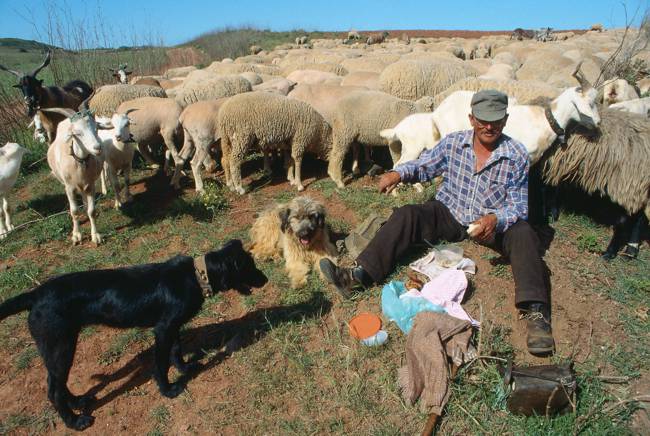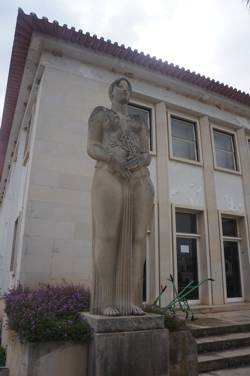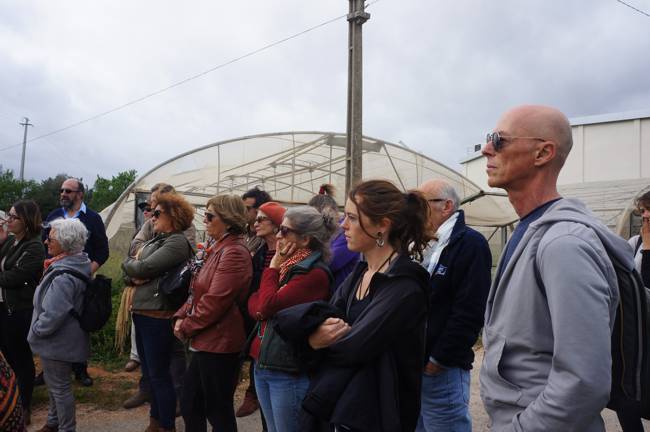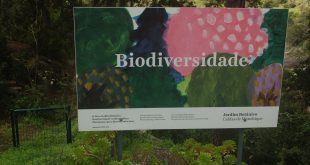Wednesday, 15th Abril 2020
by Sue Hall
It has been a mixed week of highs and lows. The isolation is getting to me, but there have been pockets of happiness. The lows have entailed anxiety about the numbers who are infected and exactly how long we will have to stay at home. A recent high was the delivery of 30 cauliflower burgers made by a friend at REconomia. Marcelo has a vegetarian restaurant in Tavira and is now offering delivery of certain foods from his menu. He was a founder member of Tavira’s REconomia group.
I am in an online group called REconomy Practitioners. It sprang out of the Transition Movement. A couple of years ago, a few of us set up a local group in Tavira. We called it REconomia, Tavira. In the first year, we set up a local currency and made a regular appearance at Tavira’s outdoor market to promote local goods and services. We have a directory of what people want to offer and what they want in return. We have made lots of connections, but trading has been slow.

Since the lockdown, most of us at REconomia have been quiet. It has been a time for reflection. Our latest attempt at coming together was for the Climate Change March that was eventually cancelled. I guess this time of inaction is allowing some of us an opportunity to work out how we can avoid going back to business as usual after the lockdown. A carbon-dependent society has to change. Influencing structures and power is always the work of activists, but there is also a place for shared thinking.
I was happy to see that Kate Raworth’s Doughnut Economics “model will be formally embraced by the municipality of Amsterdam as the starting point for public policy decisions, the first city in the world to make such a commitment.”
The Guardian says: “The central premise is simple: the goal of economic activity should be about meeting the core needs of all but within the means of the planet. The “doughnut” is a device to show what this means in practice.”

https://www.theguardian.com/world/2020/apr/08/amsterdam-doughnut-model-mend-postcoronaviruseconomy
A few months ago, Tavira Council was asked to declare a climate emergency. They refused. I wonder how easy it will be to encourage them to adopt an economic model that works for, and not against, the core needs of the planet.
Currently, Tavira is undertaking a public consultation about the Urbanisation Plan for Tavira. Part of this entails the possible closing of the Agricultural Centre (CEA). This centre is essential for training people to mitigate the impact of monocultures and climate change. Water awareness is an aspect of the role that CEA could play in ensuring an ecological water management plan.

CEA could play a role in monitoring the production of raspberries grown intensively in greenhouses. The workers are mostly from Nepal and live in buildings unfit for human habitation. Currently, 21 local greenhouse workers have COVID 19. They were moved out of the warehouse they were renting and are now living in the fairground. Tavira Council is trying to reassure locals that they have the matter in hand. I guess this wasn’t part of the plan. Right now, it’s difficult to see how an effective consultation can take place when the town is in lockdown. I’m not alone in calling for the public consultation to be delayed until after the lockdown, so groups can get together to make an individual or collective response.
 Eco123 Revista da Economia e Ecologia
Eco123 Revista da Economia e Ecologia

